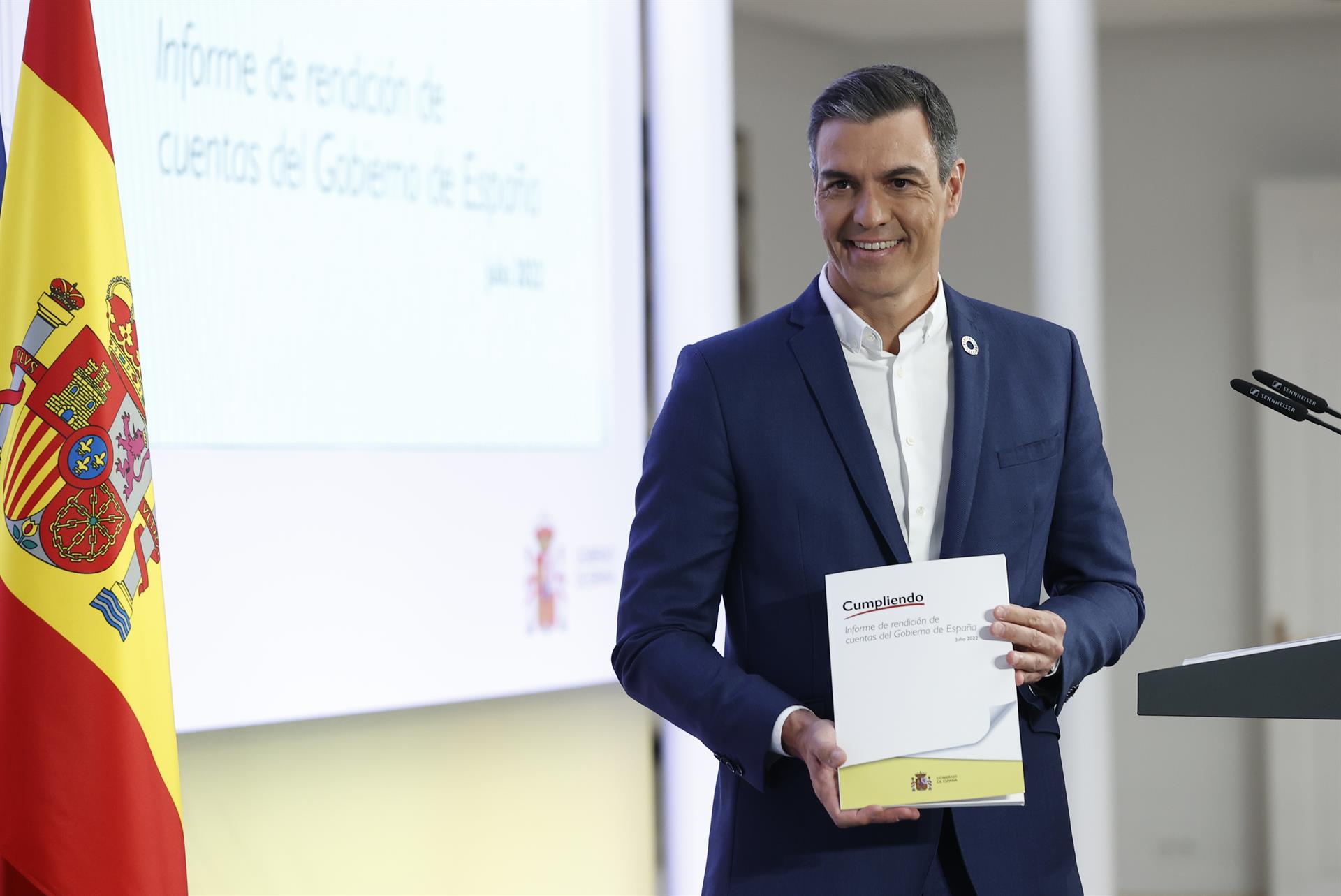Spanish prime minister Pedro Sánchez has awarded himself congratulations over the result of the survey by the Centre for Opinion Studies (CEO), which yesterday stated that 52% of Catalans are against independence. He asserted that the drop in support for independence is due to the weariness of Catalan society with the independence process but also because of the action of the political parties that favour dialogue. It was in the last two minutes of this Friday's press conference to take stock of the political year before the August break, and the only moment in which he mentioned Catalonia, and in response to the only question that was raised about independence demands.
Sánchez appeared at the Moncloa palace to assess the political situation, without a tie - encouraging others to imitate him to save energy - and in front of a large screen showing the motto "Complying, the Spanish government's performance report". His main summary did not make a single reference to the situation in Catalonia or the dialogue table, which met two days ago. But he was asked one question, the last of the day, which sought a response about relations with the Catalan government led by Pere Aragonès.
Catalan society "fed up"
The Spanish PM quoted one of the statistics from the survey published yesterday by the CEO research agency, which situated the proportion of Catalans against independence at 52%, and said that this result "has everything to do" with "a Catalan society that is fed up with the conflict, that wants to overcome the conflict and wants to be reunited with the other part of the Catalans and with the rest of the brothers they have in Spain as a whole"; but then he added that this result also speaks of those political parties that favour dialogue.
The prime minister described this commitment to dialogue as "the willingness to, little by little, gradually, re-encounter one another; to de-judicialize this crisis, to return it to the territory of politics; to find pacts and agreements that go beyond one side and are transversal; respect for the democratic order, legal certainty, and thus the abandonment of any unilateral imposition of their own views".
In short, as he added, this has made it possible for "all that" which existed in 2017 and which his government inherited in 2018 to be overcome "thanks to everyone's effort". In any case, he assured that "as long as there is a progressive government", there will be "a government in Madrid willing to dialogue with its counterpart in Catalonia".
The dialogue table to discuss the political conflict over Catalonia, which was agreed to by Sánchez in January 2020 when the Socialists needed ERC's votes to form a government, has met just three times: it had an initial meeting in February 2020, and then a "restart" meeting in September 2021, and finally, ten months later, this week's third meeting.
The PP, ahead in the polls
Sánchez was also asked about the polls that indicate that the People's Party under Alberto Núñez Feijoo has already managed to overtake the Socialists and the PM admitted that his party will have to "work to turn this around" and do so without falling into the catastrophism that he attributes to the conservative opposition and the far right. In relation to the replacement of Pablo Casado by Feijóo at the head of the PP, he noted ironically that "the opposition has changed its face but not its attitude".
Sánchez even had to answer a question about whether the Spanish elections scheduled for December 2023 could be postponed to prevent princess Leonor from having to swear on the Constitution - on the occasion of her 18th birthday - before an acting Spanish Congress that would have been formally dissolved for the elections. He dismissed the suggestion, assuring that "the elections will be held in December 2023 at the latest."

